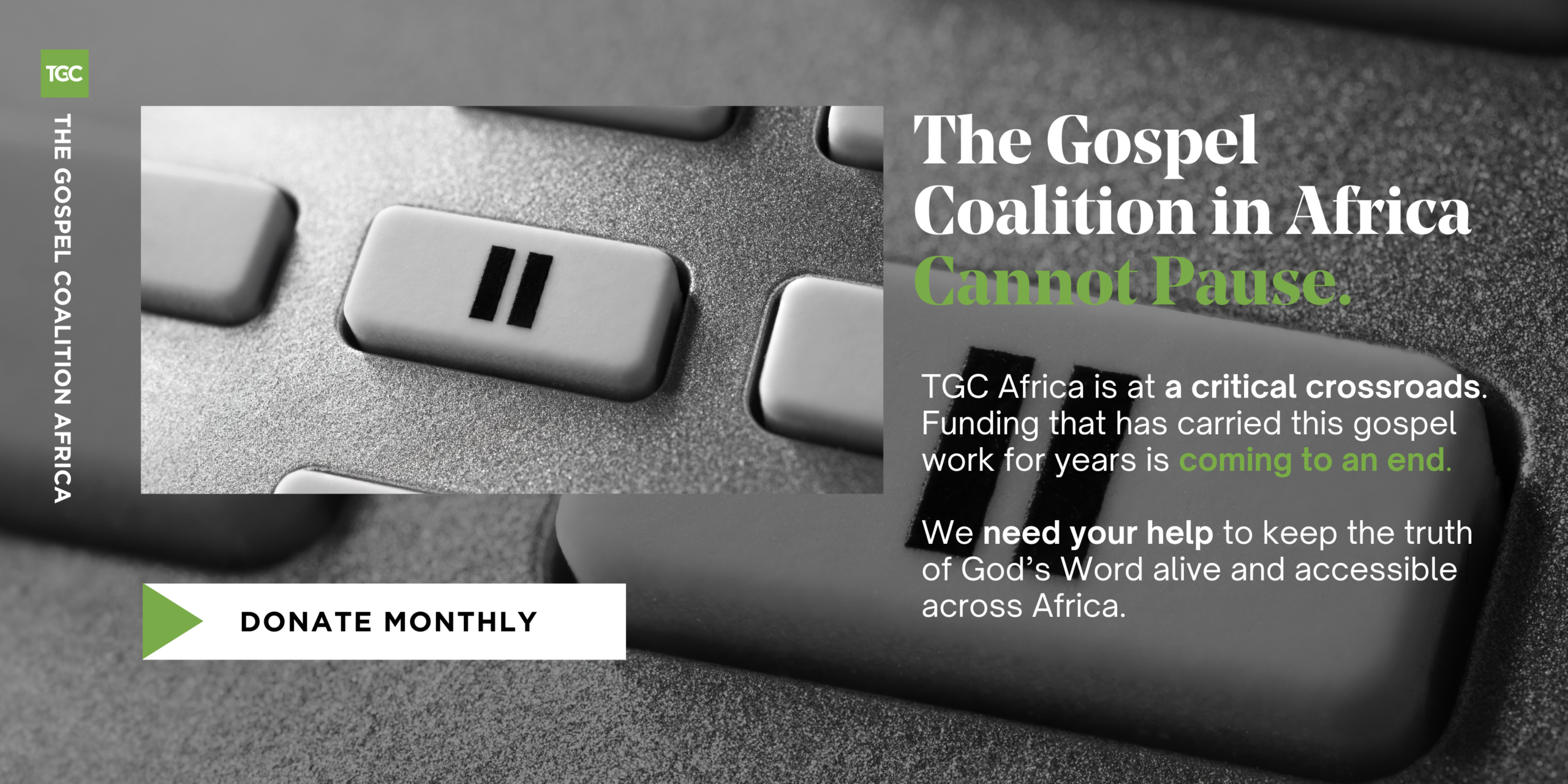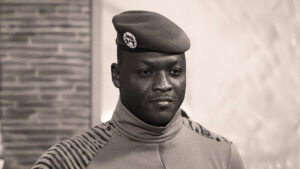For many Nigerian Christians, the answer to the title of this article is clearly yes. And this perspective is being amplified globally. Prominent American politician Ted Cruz recently tweeted about it. Even Bill Maher, who isn’t a Christian, recently stated that there’s a genocide against Christians taking place in Nigeria. Now, President Trump has designated Nigeria a Country of Particular Concern. He’s even threatened direct military intervention to protect Christians.
There are many separate and overlapping conflicts happening in Nigeria.
Because I am a Nigerian Christian, foreign friends sometimes ask for my take on the situation. My typical response has always been along the lines of, “it’s complicated.” However, with the current situation, it is important that I elaborate some more on the crisis in Nigeria. I’m going to do that under three headings. The first summarises what we know; the second, what we don’t. In the third section, I’ll propose how Christians outside of Nigeria can help.
1. What We Do Know
Without dispute, a shocking number of innocent people are killed daily in Nigeria. Conservative estimates show the figures to be over 10,000 people, violently killed in just the last two years. As some prominent Nigerian leaders recently stated, these are wartime numbers in a country supposedly at peace. Stories of massacres in remote villages have almost become routine. They no longer even make the front pages. Everyone who believes in the sanctity of human life must admit that a terrible tragedy is ongoing in Nigeria.
A shocking number of innocent people are killed daily in Nigeria.
Previously, I’ve written about the security situation in Nigeria. As I highlighted in that article, there are many separate and overlapping conflicts happening concurrently in Nigeria. In this article, I’m focusing on the specific crisis most people have in mind when they talk about a Christian genocide. That crisis is concentrated in a part of Nigeria called the Middle Belt. Though an oversimplification, the Middle Belt is where Nigeria’s majority Muslim north and majority Christian south meet. This means it is a complex mixture of ethnic groupings and religions. The Middle Belt conflict is mostly between cattle herders (predominantly Muslim, ethnically Fulani) and farming communities (predominantly Christians of various ethnicities).
An indisputable reality of the Middle Belt crisis is the destruction of homes, farms, and property. Added to this, when people are driven from their homes by conflict, deliberate efforts are made to prevent return or resettlement. A typical attack won’t only murder innocents or chase them away. Once the people are gone, the attackers set about burning homes and fields. Churches too.
Finally, one last well-established fact. Even though the British imperialists bested the Islamic rulers of the Sokoto Caliphate in the early 1900s and started ruling there, devout Muslims nevertheless make up the elite class and have endeavoured to limit the spread of Christianity in those regions in including the Middle Belt, considering them still to be under their sphere of influence. They’ve attempted to prevent preaching, and successfully removed Christian signs and symbols, including demolishing a cultural monument because it looked like a cross. Sometimes this hostility towards Christian influence has resulted in outright persecution and periodic riots that target Christians.
2. What We Don’t Know
It’s important to emphasise that three of the major flashpoints between farmers and herders in the Middle Belt (Southern Kaduna, Plateau State and Benue State) have been going on for decades, as far back as the 1970s (see, for example, here, here and here). But it’s also important to note that while those conflicts were occasionally violent, the situation has steadily deteriorated through the decades. Today, the conflict in those regions is out of control. Apart from the big cities, most of the rural areas are essentially ungovernable. That current climate, along with the conflicts’ deep roots, has led to an intense distrust and a thick fog of misinformation.
To claim that there’s a Christian genocide taking place in Nigeria, there must be clear evidence or proof that the attackers and perpetrators of violence have the specific intent of destroying the group they’re attacking for no reason other than them being Christian. But many attacks taking place across Nigeria lack precision. Those carrying out the violence don’t appear particularly discerning.
There must be proof that the perpetrators are intent on attacking Christians for no reason other than them being Christian.
A group of herders will descend on a remote village in a pre-dawn raid. They proceed to shoot at anything and everyone, burning down buildings without discrimination. At daybreak, they retreat into the bush. What were the motives for this attack? Certain media outlets, sympathetic towards the herdsmen, will cite previous attacks on herders’ villages by farmers, meaning it was retaliation (even though casualty figures clearly indicate farming communities are disproportionately killed, due to the superior weaponry of the herdsmen). Or it will be claimed that the farmers killed the herders’ cattle, since disputes over grazing land are ongoing.
Naturally, murderers don’t grant interviews in which they state their intentions. Thus, the increase in violent attacks could be an additional element of jihadist attempts to drive Christians from the region. However, it is impossible to factually know how many of those attacks, if any, are Islamic extremism. Without arrests and trials of the persecutors, it’s difficult to know for certain. Unfortunately, the Nigerian government has done an atrocious job of capturing perpetrators. Many people read this as a sign of collusion. However, when we remember that as much as 85% of murders in Nigeria are unsolved, it fits the national pattern. Furthermore, claims about government collusion are further complicated by the involvement of security agencies.
Insisting on a larger narrative—without compelling, incontrovertible data—usually results in defaulting to our own biases and positions, ignoring the complexity of matters and just how much isn’t yet clear.
3. What Christians Can Do?
Here are four simple suggestions for well-meaning Christians outside Nigeria.
i. Stop Describing What’s Happening in Nigeria as a Genocide
There is a reason why the word genocide is reserved for the worst moments in history. It is one of the most horrendous crimes known to man. But we don’t want to be the boy who cried wolf when unsure about what’s really going on. God forbid that in the future something worse starts happening to Nigerian Christians. Would anyone take us seriously then? Let’s rather say “there are too many Christians being killed in Nigeria.” Better still, “there are too many people getting killed in Nigeria.” This will take much of the sting out of the debate.
ii. Press Nigerian Authorities to Take Security More Seriously
At the heart of the present crisis is the Nigerian state’s inability to provide meaningful security of life or protection of property. This is a failure of their most fundamental duty to all Nigerians. Christians everywhere should press their governments to help Nigeria solve this issue. Attention and awareness is critical. But it must also be well-informed, alert to the nuance and years of complicated conflict across our country.
iii. Come Alongside the Nigerian Church
The Nigerian church is in much need of help to resettle Christians and rebuild homes. Christians and churches who already partner with churches in Nigeria will do well to ask these churches how they can help, in concrete ways. For those without existing partnerships should look for organisations that have a long history of working with persecuted churches in Nigeria. This is to ensure that their aid helps the most needy and doesn’t cause long-term problems.
iv. Pray
Finally, the most important thing I urge Christians to do is pray. Christians are a people who believe in an almighty God. He watches over his children. Will he not hear our cries? Let believers around the world and in Nigeria call on God to show forth his powerful hand. “Let God arise, let his enemies be scattered: let them also that hate him flee before him” (Psalm 68:1).
Let believers call on God to show forth his powerful hand.
I understand that the perspective I’ve shared here may be different from what is currently being amplified by the media. As I said in the beginning, the situation is complicated. We don’t want to flatten out the nuances to fit some narrative. Christians must be committed to the truth and follow it wherever it will take us. May the name of Jesus be known and praised all over Nigeria, and may the gates of hell never prevail over his blood-bought saints in Nigeria (Matthew 16:18).
 DON’T HAVE PAYPAL TO SET UP A MONTHLY DONATION? If you would like to donate via Payfast – a secure payment gateway available to donors both inside and outside of Africa – please click here.
DON’T HAVE PAYPAL TO SET UP A MONTHLY DONATION? If you would like to donate via Payfast – a secure payment gateway available to donors both inside and outside of Africa – please click here.














